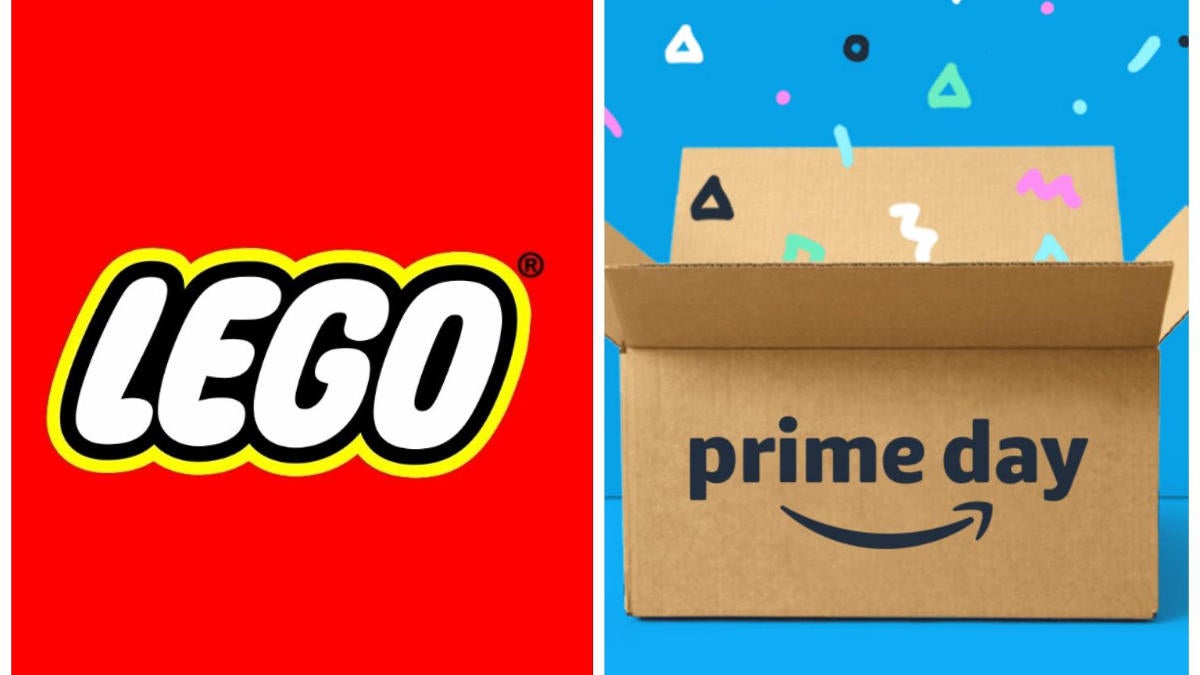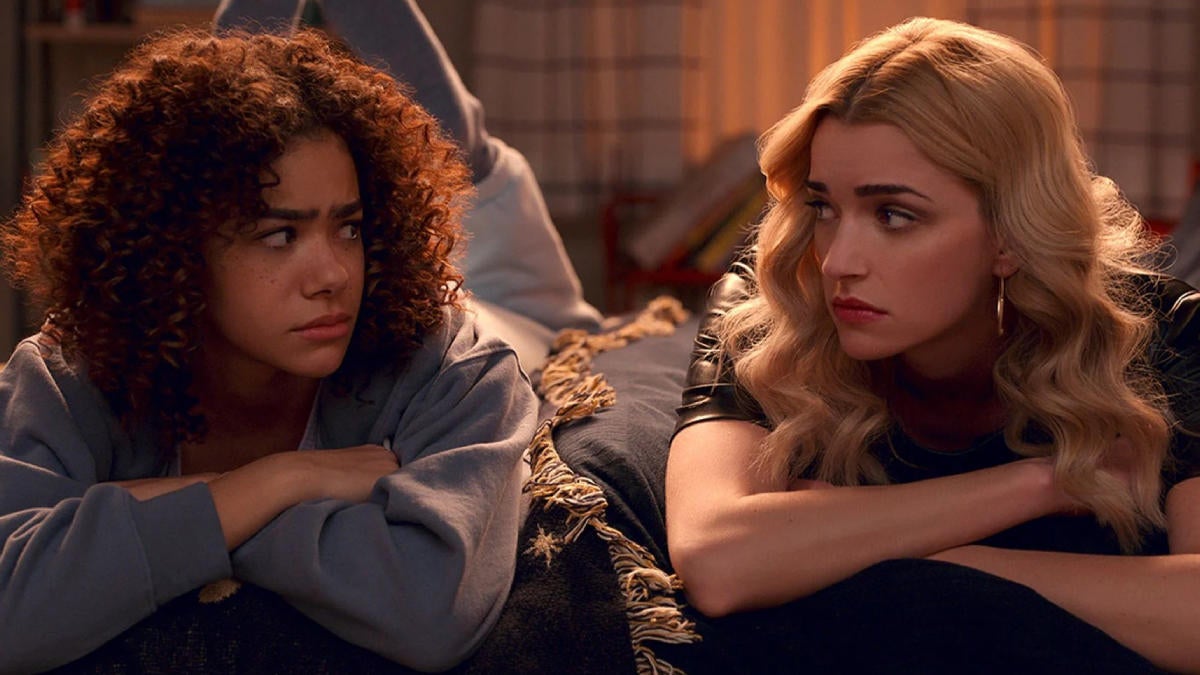Star Trek: Prodigy's Creators on Making Season 2 More Trek and What Fans Can Do to Help Get a Season 3
Kevin and Dan Hageman discuss Star Trek: Prodigy Season 2 on Netflix.
Star Trek: Prodigy Season 2 is finally here. It's been a long road (to steal a line from another Star Trek series), but Star Trek: Prodigy Season 2 is now streaming on its new home, Netflix, after being canceled and removed from Paramount+. Since Star Trek: Prodigy Season 1 arrived on Netflix on Christmas Day, all 40 episodes of the animated Star Trek series are now streaming on Netflix. Star Trek: Prodigy Season 2 continues the adventure of the young heroes who recovered an abandoned, experimental Starfleet vessel and used it to cross the galaxy and join Starfleet, saving the universe along the way.
ComicBook had the opportunity to chat with Star Trek: Prodigy creators Dan and Kevin Hageman about the new season, touching on new characters and how they balance the expectations of longtime Star Trek fans and the demands of children's programming. Here's what they had to say:

When you sat down to start breaking Star Trek: Prodigy Season 2, what was the "prime directive," so to speak? What was your guiding light when figuring figure out what this season was going to look like?
Dan Hageman: I think we wanted to make it more Trek, with the young cadets, so to speak, in the adult world. We thought that was very interesting. And then we go, "This isn't just about the kids learning from the adults, but also the adults learning from the kids." And I think that's where it opened the door for what the season would be. And then also trying to tie the bow on what happens in Season 1, furthering those storylines and making sure that we have conclusions for those.
Kevin Hageman: I was also going to add, very early on we felt like, okay, Season 1 is these kids steal a ship; Season 2 is they earn a ship, and what does that look like? And along with that, these next 20 are like the back half of Season 1. It's all a 40-episode story really, and so there's so much to wrap up, and to pay off, and places to go, but we also didn't want to forget, this show is an on-ramp for anyone who doesn't know Star Trek. So how do we still have these little greatest hits, these ideas, whether it's Vulcans, Klingons, Tribbles, what are the elements that makeup Star Trek that we should be introducing people to?
What was your production timeline like? Had anyone seen Season 1 while you were working on Season 2 and breaking it down, or was it all really part of a whole for you all in the writer's room?
DH: I mean, COVID hit, and I think everything's a bit fuzzy.
KH: Yeah, I don't think Season 1 was out yet. Maybe-
DH: I don't think Season 1 was out. Yeah, because we were upped before Season 1 had dropped, and I just remember we had finished -- You know what it was, we had finished the last script of Season 1 when COVID hit, and then we were ramping up and getting a room for Season 2 over COVID, that first year of COVID.
You say you wanted this season to be "more Star Trek," but it's still a kids' show. That makes me wonder if you read Temporal Mechanics 101 because there's a lot of time-travel stuff in here. Did you have any hard and fast rules of thumb or guidelines about how to deal with time travel in a way that makes sense -- because we all know time travel isn't always consistently handled in Star Trek -- and is accessible for this younger audience as compared to an adult audience?
DH: I feel like we kind of have our cake and eat it too, where if you really dig into the science, it's there, but then at the same time there's a very simple Back to the Future premise in Season 2 for a younger audience that goes, okay, I can get that very simple thing. But yeah, I remember thinking not only are we going to be doing a time travel season, but we're also going to do a Star Trek time travel season, which is like, we know the fans are going to be looking at that, looking for all the plot holes. There's always plot holes.
KH: Yeah, we mapped it out, we showed it to our astrophysicist advisor, "Does this work?" And she was redoing the drawing. She's like, "Yes, this can work."
Star Trek: Prodigy Season 2 adds a new young character into the mix with the Vulcan Nova Squadron cadet Maj'el, which brings up a couple of questions. First, has there ever been a member of Nova Squadron that hasn't come off like a jerk at first? Because I'm starting wonder why Starfleet Academy allows that to continue to exist.
DH: [Laughs] I think Nova Squadron's the coolest of the cool.
Second, when you were looking at adding Maj'el to the cast, what was the impetus there? What did you feel like she brought to the group? How did that alter the group dynamic in a way that you felt would be beneficial for this second season going forward?
KH: In Season 1, we really didn't explore Vulcans at all, and so we felt like we need to have a Vulcan. And with Gwyn being separated from our group for a period of time, it was like, yeah, let's introduce a new character. So that's where that started. Oh, what I love though is I don't want to say she's a jerk. It's interesting. We wanted to use her as the sort of mirror to our kids.
DH: Who are they up against? The best of the best are going to Starfleet. Who else are they going against?
KH: "We're the best of the best," yeah. This is Top Gun, and our kids, yeah, they saved the universe, but-
DH: They're a far cry from those Delta flyers.
You do not hold back in the season with altering – sometimes literally, and physically – who these characters are. Since you are programming for kids, are you ever concerned about is this going to upset them, or are you always assuming they're as game as any adult would be for this kind of dynamic narrative choice?
DH: I just want to say, in our childhood, Spielberg put a dead E.T. on a table, so we've got free game to do whatever we want.
KH: That's the storytelling we grew up with was the old Amblin storytelling, the Close Encounters. Very powerful, magical, wondrous, frightening, heartbreaking. That's the type of story we like to tell.
DH: It sticks to your bones. As you grow up you remember that.
KH: It sticks, exactly. We want our shows to stick to your bones. So even with Ninjago, we had some huge character deaths and twists and kids were crying, and it's probably sad and painful in that moment, but I think they're going to look back and go, "God, I loved Ninjago. I loved Prodigy. It really moved me."
DH: It's always funny. When Kevin and I come out of a Marvel movie we're always like, "They should kill more characters." In Endgame they take out one or whatever, and I'm like, "Oh, come on, that's it? Let's go, yo."
We've got some bloodthirsty children's content creators right here.
KH: That's the caption of your article.
DH: Let's go, yo.
I'll leave you with the question that I'm sure you're going to get a lot of while promoting this season, but can you offer any update to those hoping that there will be more Prodigy in the future? Or whether we might see these characters anywhere else in the future, even if Prodigy doesn't get an official renewal or anything like that?
KH: That is our hope. That's everyone's hope. Everyone on our team and all of our cast and crew, and it really just comes down to, the show needs to do gangbusters on Netflix. And then I hope it just warrants something, whether it's a season, whether it's an animated feature follow-up, or something that might be more business cost-effective, something to just keep this going.
DH: And I think it's fitting. I'm not going to spoil anything, but if you really get to the end of Season 2, where they are is kind of metaphoric of where the show is. So that's something to read into once you finish episode 40.
Star Trek: Prodigy is now streaming on Netflix.




